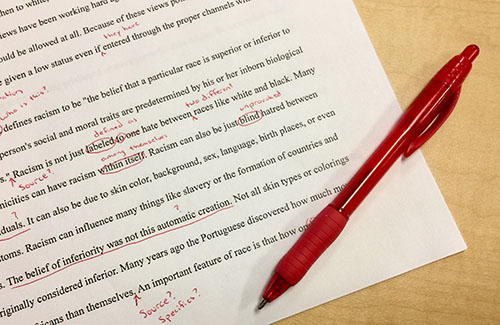
The media play a significant role in how you and the company are portrayed in the public arena, so it’s vital that both you and your PR team focus on building and maintaining positive relationships. This can be difficult when a negative or incorrect article is published and you, as a spokesperson, are involved.
Asking a journalist for a correction or retraction can be tricky, and if mismanaged can tarnish the hard-earned relationship you have built.
Here, we list our suggestions on best managing the most common scenarios.
The tone or wording doesn’t sound right
Sometimes, you may not agree with the tone of the article, exact wording, or way you or the company have been positioned. It can be frustrating, especially if the article is negative and you felt the interview went in a positive direction.
In instances like this, as difficult as it is, you should not ask the journalist for a correction. The media are entitled to freedom in their writing style and tone, and it will damage your relationship with the journalist, and jeopardise future opportunities, if you try and take control of their editorial license.
It could be something you said. At the time, it may have sounded okay, but out of context and in writing as a quote, it is unsettling.
In general, information shared on the record is public information.
If you have immediate regret after the interview, your PR team can liaise with the journalist to smooth out some of the wording – but it’s important to act quickly.
There are some incorrect facts and figures
Journalists are increasingly under pressure to meet deadlines and file numerous stories each day. Mistakes can easily happen when reciting figures and intricate details, especially if the article is written a few days or weeks after the interview.
In this instance, a fact or figure is incorrect, it’s important to review any interview notes or recordings you or your PR team have and confirm what was said on the day.
As a spokesperson, it can be difficult to recall the exact dollar amount or the official name of complex products during an interview. The best approach is to caveat anything you’re unsure about with a disclaimer and confirm you will send a follow up email with the precise detail. Having someone from your PR team facilitate the interview is important in scenarios like this to ensure this process is seen through.
Journalists strive for accuracy in their stories, so are usually open to actioning corrections of this nature. It’s important to approach the journalist about a correction in a friendly way.. An even better approach is to let the experts (your PR team) handle it—they’ve done it many times before!
The article is entirely false
In the event the article is completely false or misleading, a full retraction can be requested. It is a rare occurrence, with the retraction usually published in the paper in the following days.
It’s important to contact the editor and precisely detail the issues with the piece in a clear and calm manner.
Remember: retraction requests should be saved strictly for worst case scenarios.
In a perfect world, every article published about you and your company would be factual and positive – but unfortunately, the reality can be much different.
Media training and ensuring your interviews are facilitated by your PR team are two simple ways to mitigate any issues and maintain positive relationships.

